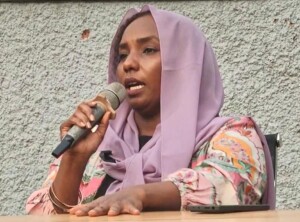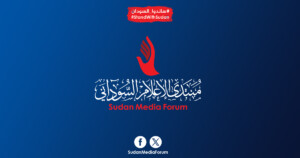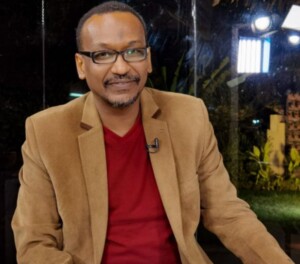Situation in Darfur ‘deteriorated significantly’ over past year: Ladsous
The security and humanitarian situations in Darfur “deteriorated significantly” during the past year, according to Hervé Ladsous, UN Under-Secretary-General for Peacekeeping Operations. Speaking to the Security Council in his quarterly briefing on Tuesday, he said there has also been no tangible progress toward resolving the conflict.
Ladsous presented two reports to the Council; the Secretary-General’s report on Unamid, which covers work from 26 November 2014 to 12 February 2015, and a special report on the Mission’s three new strategic priorities, whose implementation, Ladsous said, was the primary goal.
The security and humanitarian situations in Darfur “deteriorated significantly” during the past year, according to Hervé Ladsous, UN Under-Secretary-General for Peacekeeping Operations. Speaking to the Security Council in his quarterly briefing on Tuesday, he said there has also been no tangible progress toward resolving the conflict.
Ladsous presented two reports to the Council; the Secretary-General’s report on Unamid, which covers work from 26 November 2014 to 12 February 2015, and a special report on the Mission’s three new strategic priorities, whose implementation, Ladsous said, was the primary goal.
“The current upsurge in Darfur, at least for now, is largely attributable to the ongoing Government of Sudan and the Rapid Support Forces military offensive,” he stated.
Describing the government’s “dry season” military offensive against non-signatory armed groups, the UN peacekeeping official said that the government forces have significantly weakened and isolated the rebel groups geographically, while also causing “significant loss of lives and large-scale displacement”.
Around 450,000 people in total were newly displaced during 2014, as a result of violence, which, he said, was at a higher volume in any single year since the peak of the conflict in 2004. At least 300,000 of those remain displaced, mostly in camps. According to the UN peacekeeping official, the current number of displaced in Darfur totals 2.5 million.
“This negative trend has continued most recently with the continuation of fighting between the government and the armed groups,” he said, pointing to “at least 43,000 new displacements since the beginning of the year.”
He noted that the renewed violence is not “directly linked with the forthcoming Sudanese general election. Yet, he warned that events on the ground could change as election campaigns intensified, particularly in light of recent calls by Musa Hilal, a prominent tribal leader in North Darfur, for an election boycott, and disruption of the electoral process across Darfur.
Ladsous considers the prospects for holding the National Dialogue between the Sudanese government and the opposition before the general election begins on 13 April, “limited, with talks on Darfur breaking down and the government implementing measures curtailing political freedom”.
He pointed in this context to the Berlin Declaration, signed on 27 February by the allied opposition forces, who called for the convening of an inclusive preparatory meeting at the AU headquarters in Addis Ababa to revive the talks. “The Berlin Declaration seems to demonstrate a certain consensus among the opposition to reengage in the National Dialogue,” he noted.
Unamid
Turning to the UN-AU peacekeeping Mission in Darfur, Ladsous described the efforts taken to address the three main challenges to its mandate implementation, which were identified in last year’s strategic review: improved cooperation with the government in some areas, implementation of measures to improve the Mission’s troops’ operational capabilities and effectiveness on the ground, and improvements to coordination and management structures.
“Nevertheless, some of the major challenges remain,” he said, listing the need to improve Unamid’s reporting of incidents and analysis, its internal and external communications approach, and the recruitment of personnel to key posts.
“Despite strategic and operational-level improvements in coordination with the UN Country Team, further progress on establishing an effective Darfur-wide early warning and response system is required.”
‘Situation in Darfur is stable’
In a reaction to the statements of the UN Under-Secretary-General for Peacekeeping Operations, Ambassador Hassan Hamid Hassan, UN Permanent Representative of Sudan, told reporters that Ladsous’ first report “covered last year, so it could be more or less considered a backdated report”. He briefly commented that Ladsous’ statements about Darfur were “quite contradicting, as the current situation in the five states of Darfur is stable”.
As for the exit of Unamid from Darfur, he said that the “Security Council is now seriously considering an exit strategy. “In the latest resolution on Unamid, the Council renewed the mandate of Unamid which contains provisions that clearly demand the UN secretary-general to submit recommendations on how to shift certain tasks of Unamid to the UN Country Team in Sudan”.
“Sudan received two UN delegations to discuss the exit strategy,” Hassan said, stressing that the Sudanese government is fully cooperating with Unamid “for a smooth and peaceful exit strategy”.
Yesterday, a joint working group composed of representatives of the Sudanese government officials, the UN, the AU, and Unamid, met to start preparations for drawing-up a common strategy for Unamid's eventual exit from Darfur.











 and then
and then